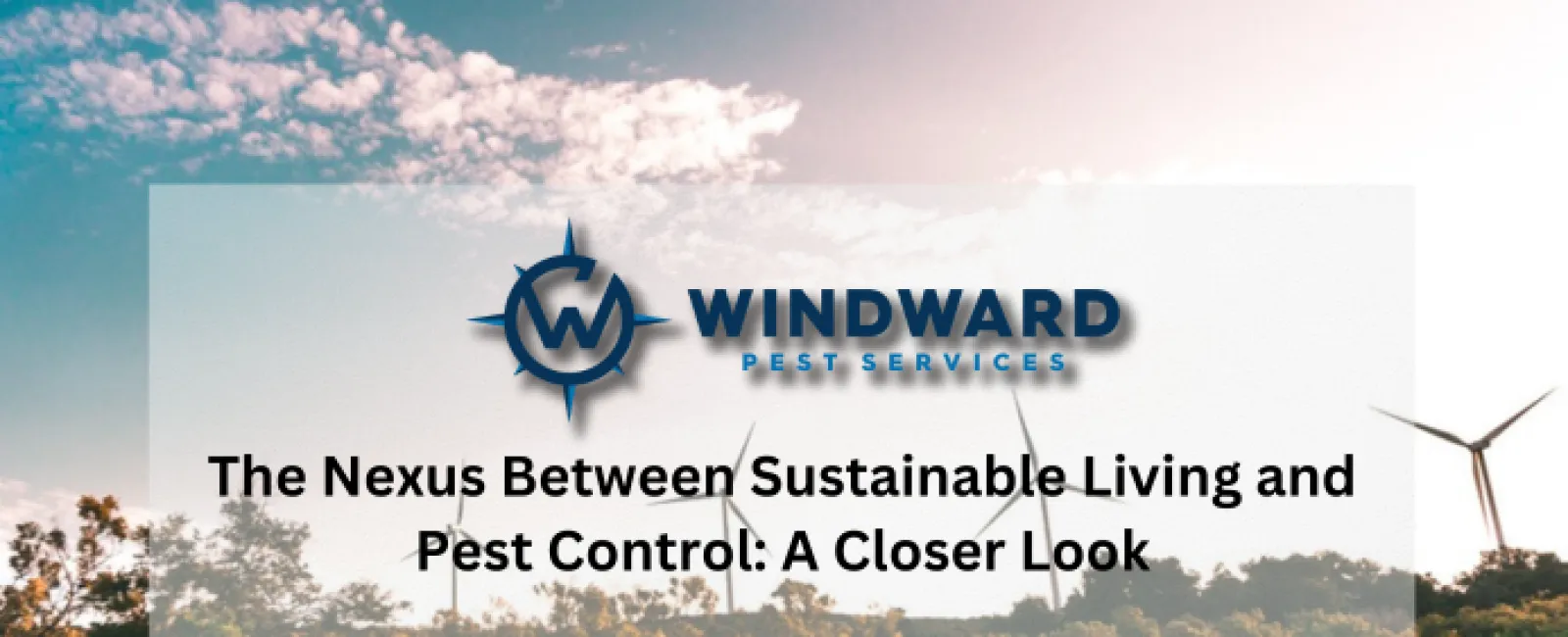In recent years, the concept of sustainable living has garnered substantial attention as individuals and communities increasingly recognize the importance of reducing their environmental footprint and preserving the planet for future generations. Sustainable living encompasses a holistic approach to lifestyle choices, emphasizing practices that minimize resource consumption, promote environmental stewardship, and foster long-term ecological balance. While many aspects of sustainable living, such as energy efficiency and waste reduction, are well-known and widely discussed, one critical component that often flies under the radar is pest control.
Pest control plays a pivotal role in sustainable living, yet it is frequently overlooked in discussions about environmental conservation and eco-friendly practices. By adopting eco-friendly pest control methods, homeowners can not only safeguard their homes from unwanted pests but also contribute to broader sustainability efforts and promote a healthier planet. In this article, we'll delve into the intricate connection between pest control and sustainable living, shedding light on the significance of eco-friendly pest management practices and their impact on both the environment and our daily lives.
The Importance of Sustainable Pest Control
Pests pose a myriad of challenges for homeowners, ranging from property damage and financial losses to health risks and environmental concerns. Traditional pest control methods often rely on the indiscriminate use of chemical pesticides, which can have adverse effects on human health, wildlife, and the environment. In contrast, sustainable pest control approaches prioritize environmentally friendly methods that minimize harm to non-target organisms and ecosystems while effectively managing pest populations.
By embracing eco-friendly pest control practices, homeowners can achieve the following:
Minimize Environmental Impact: Chemical pesticides used in conventional pest control methods can contaminate soil, waterways, and the air, posing significant risks to ecosystems and biodiversity. Sustainable pest control methods, such as integrated pest management (IPM) and biological controls, offer effective alternatives that target pests while minimizing environmental harm.
Protect Human Health: Exposure to chemical pesticides has been linked to various health problems in humans, including respiratory issues, neurological disorders, and certain cancers. By reducing reliance on toxic chemicals and adopting non-toxic pest control measures, homeowners can create safer living environments for themselves and their families.
Preserve Biodiversity: Chemical pesticides not only target pests but also harm beneficial organisms such as pollinators, predators, and soil microbes, disrupting fragile ecosystems. Sustainable pest control practices aim to preserve biodiversity by minimizing the impact on non-target species and promoting ecological balance.
Promote Long-Term Solutions: Sustainable pest control strategies focus on addressing the underlying causes of pest infestations rather than simply treating the symptoms. By implementing preventive measures, improving sanitation practices, and addressing structural vulnerabilities, homeowners can achieve more sustainable, long-term solutions to pest management.
Atlanta Pest Control: A Case Study
In Atlanta, Georgia, where diverse ecosystems and urban environments converge, pest control presents unique challenges and opportunities. The humid subtropical climate of Atlanta provides ideal conditions for a wide range of pests, including ants, cockroaches, mosquitoes, termites, and rodents. Effective pest control in Atlanta requires a multifaceted approach that considers the region's environmental factors, pest populations, and community dynamics.
Interior treatments are a critical component of sustainable pest control in Atlanta, where pests can infiltrate homes and buildings, causing property damage and health risks. Sustainable interior treatments focus on non-chemical interventions such as sealing entry points, improving sanitation, and employing mechanical controls to exclude pests from indoor spaces. By combining these eco-friendly methods with targeted treatments as needed, homeowners can effectively manage pest populations while minimizing environmental impact.
The Impact on Pest and Home Life
Sustainable pest control practices not only benefit the environment but also enhance the quality of life for homeowners. By reducing the presence of pests in and around the home, sustainable pest control measures can:
- Promote Health and Safety: Pests such as rodents, cockroaches, and mosquitoes are not just nuisances; they can also pose serious health risks to homeowners and their families. Rodents, for example, can carry diseases such as Hantavirus and Salmonella, which can be transmitted to humans through contact with their droppings, urine, or saliva. Cockroaches are known allergens and can trigger asthma attacks and allergic reactions in susceptible individuals. Mosquitoes are vectors for diseases such as West Nile virus, Zika virus, and malaria. By effectively managing pest populations through sustainable pest control practices, homeowners can create safer and healthier living environments for themselves and their families. By reducing the presence of disease-carrying pests, homeowners can minimize the risk of illness and infection, promoting overall well-being and quality of life.
- Preserve Property Values: Pests can cause significant damage to homes and property, compromising structural integrity, contaminating food supplies, and creating unsanitary conditions. Termites, for example, are notorious for their ability to destroy wooden structures, causing costly damage that can undermine the value of a home. Rodents can chew through electrical wiring and insulation, posing fire hazards and increasing the risk of electrical failures. Cockroaches and other pests can contaminate food and surfaces with bacteria and pathogens, putting homeowners at risk of foodborne illnesses.
- Enhance Peace of Mind: Dealing with pest infestations can be stressful and disruptive, affecting homeowners' mental well-being and quality of life. The presence of pests can cause anxiety, frustration, and discomfort, leading to sleep disturbances, decreased productivity, and diminished overall happiness. In addition to the physical discomfort and inconvenience of dealing with pests, homeowners may also experience emotional distress and worry about the safety and hygiene of their living environment. Sustainable pest control measures help protect property values by preventing pest-related damage and minimizing the need for costly repairs and renovations. By addressing pest infestations proactively and implementing preventative measures, homeowners can safeguard their homes against structural damage, preserve their investment, and maintain the aesthetic appeal and marketability of their property.
By implementing sustainable pest control measures, homeowners can enjoy greater peace of mind, knowing that their homes are protected from pests in an environmentally responsible manner. By taking proactive steps to prevent pest infestations and address existing pest problems, homeowners can reduce stress and anxiety, improve their quality of life, and create a more harmonious living environment for themselves and their families.
The connection between pest control and sustainable living is undeniable. By embracing eco-friendly pest control practices, homeowners can contribute to broader sustainability efforts, protect the environment, and promote healthier, safer communities. In Atlanta and beyond, sustainable pest control offers a pathway to a greener future, where humans coexist harmoniously with nature, and homes are sanctuaries of health, comfort, and environmental responsibility. As we strive towards a more sustainable future, let us recognize the importance of sustainable pest control and its role in creating a healthier planet for generations to come.

